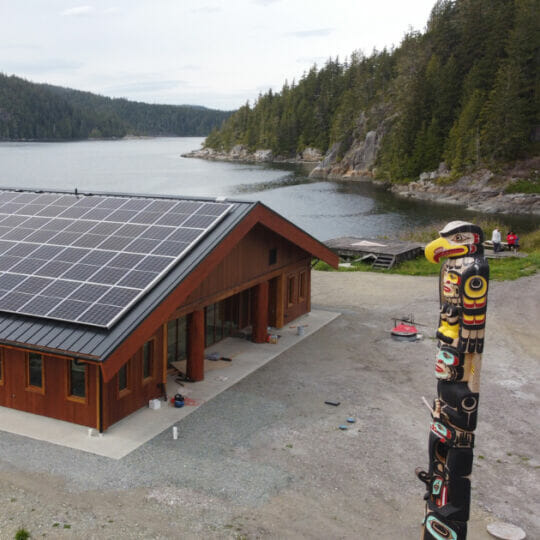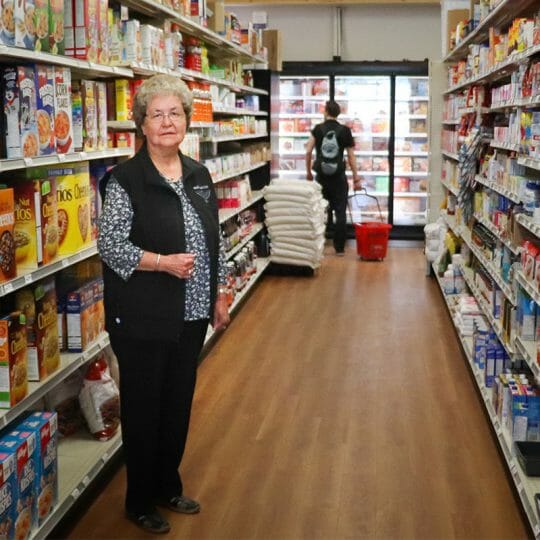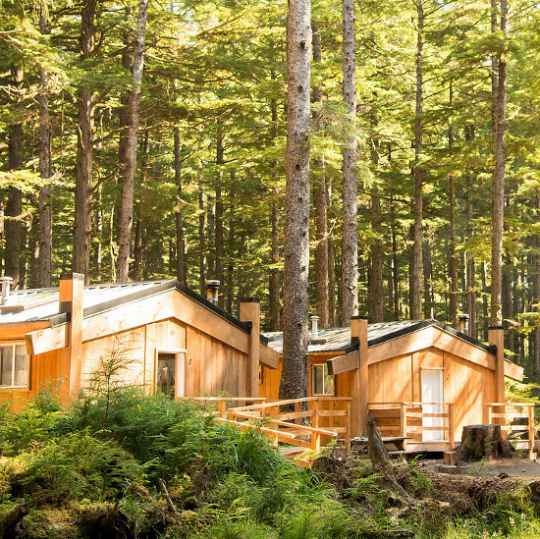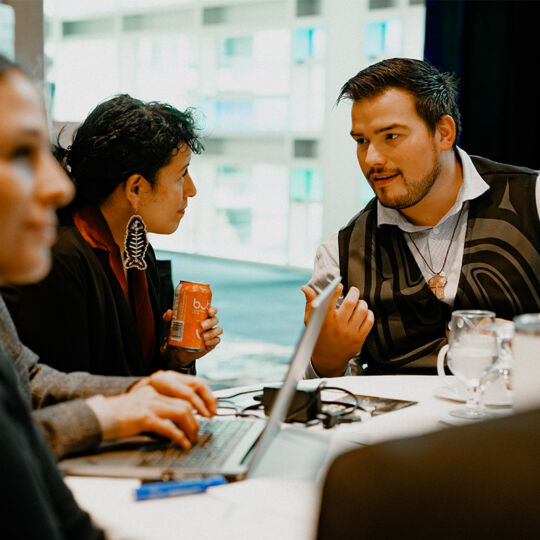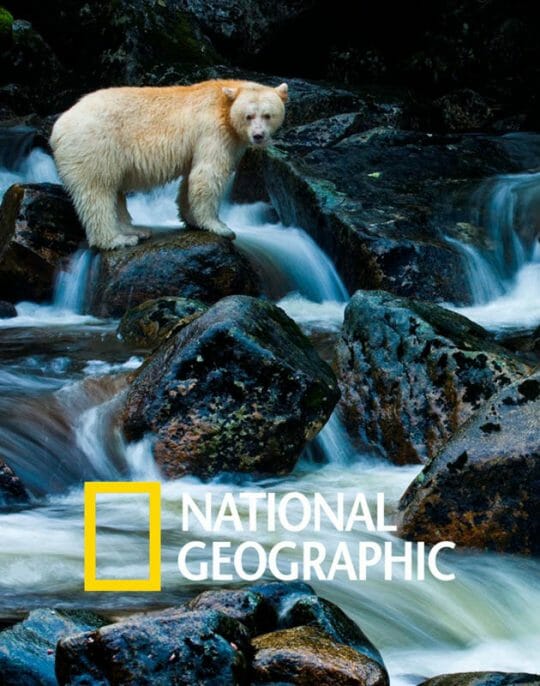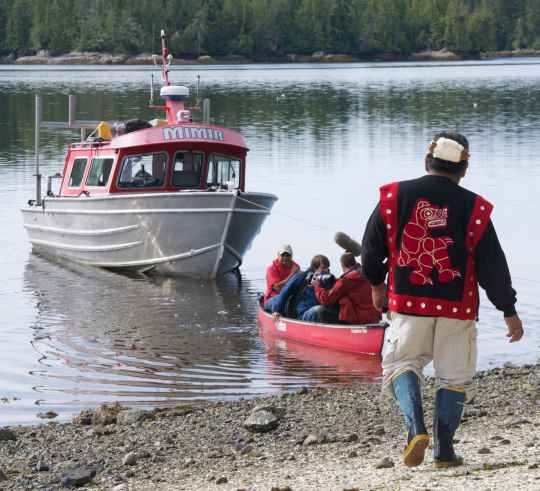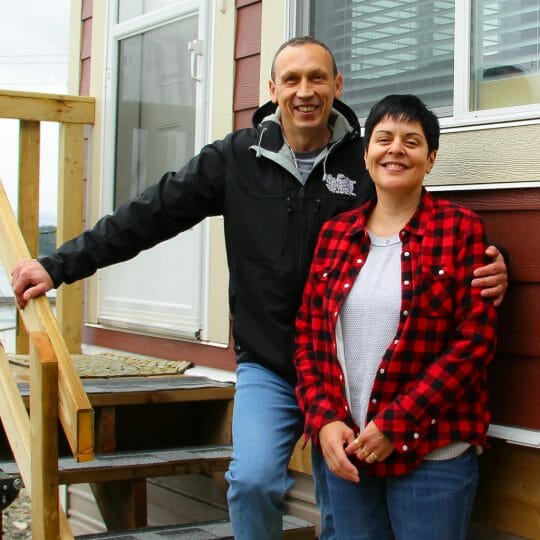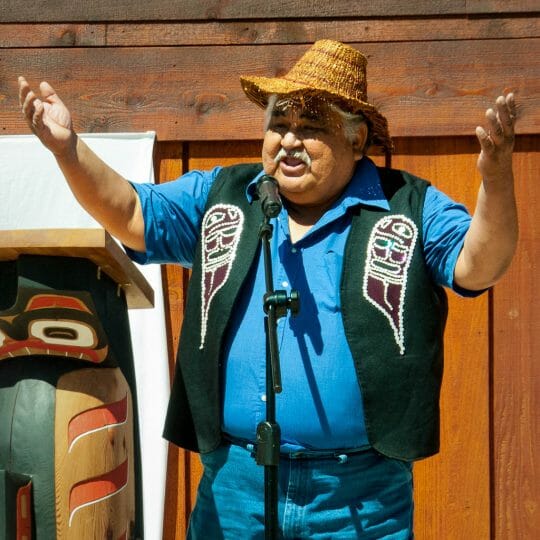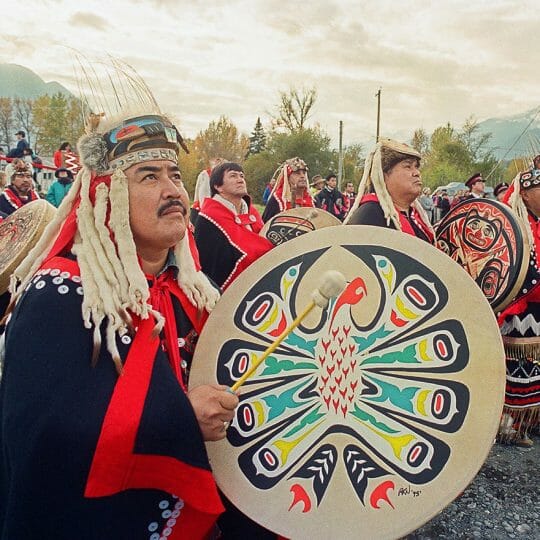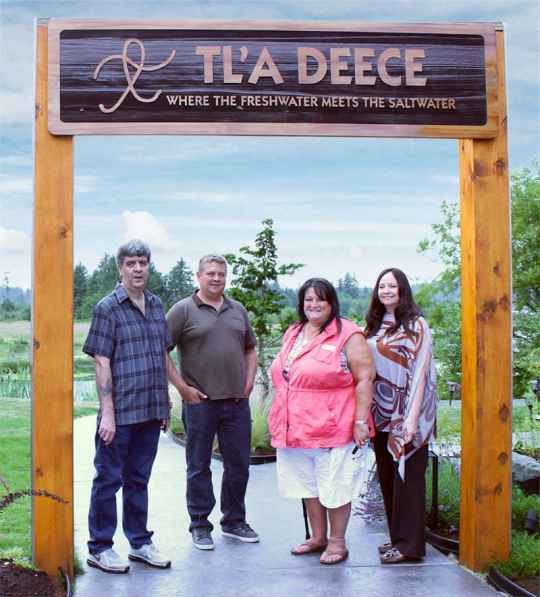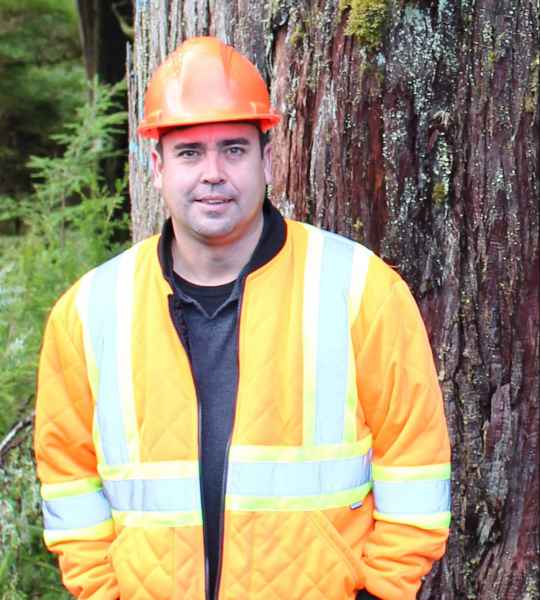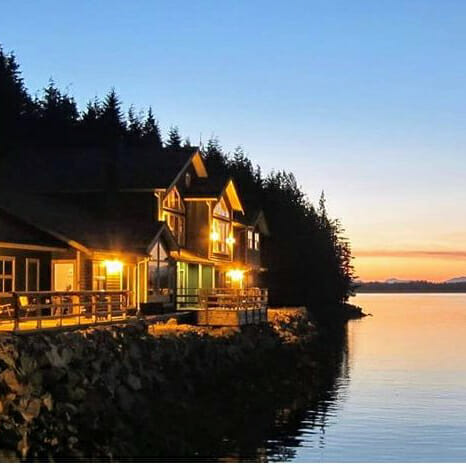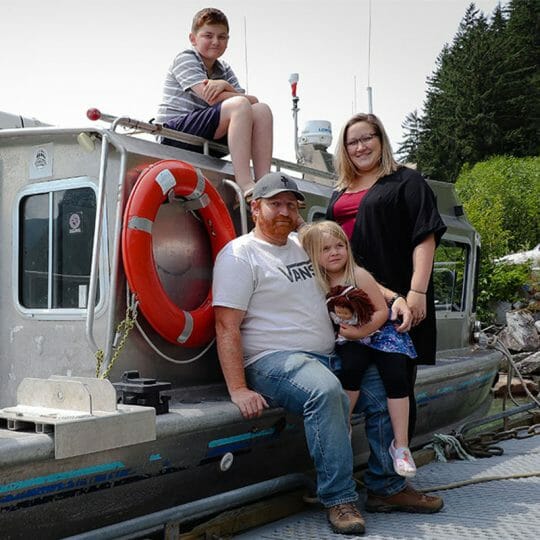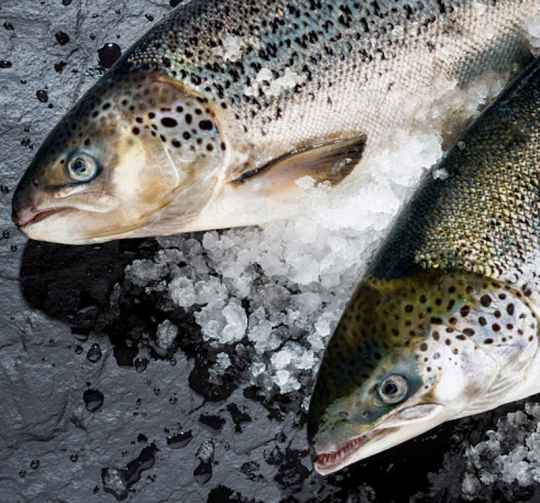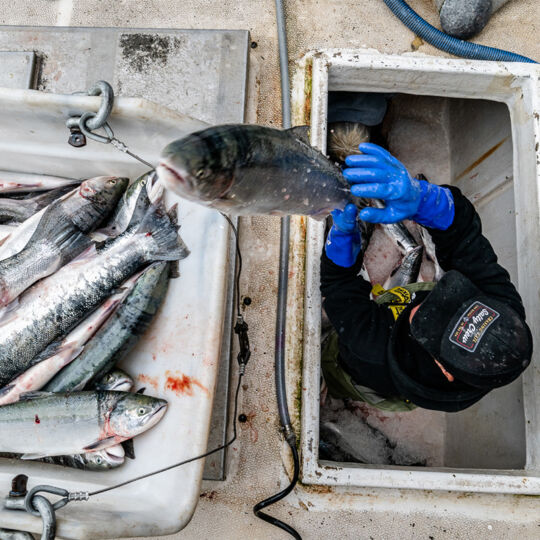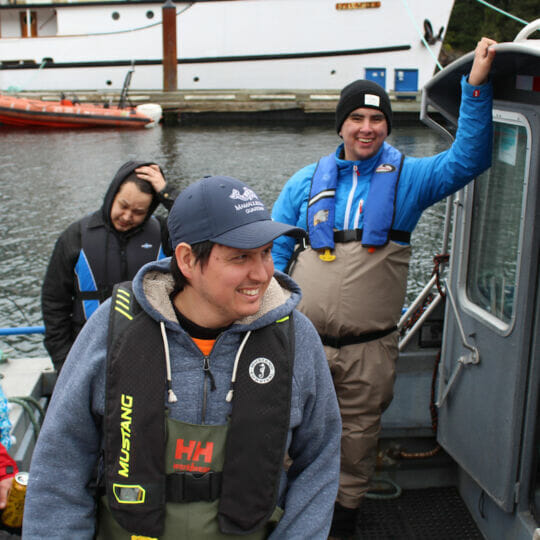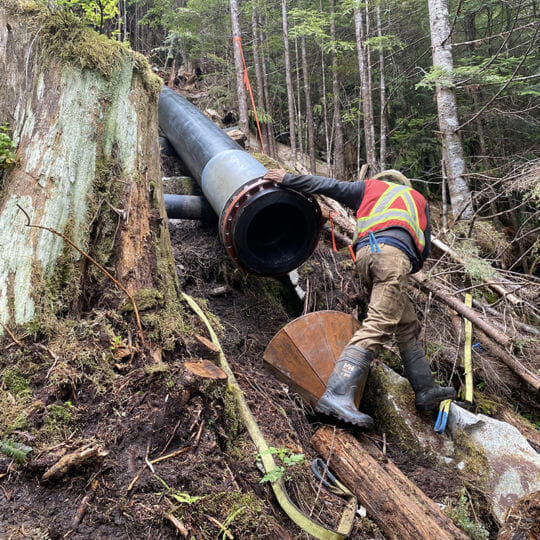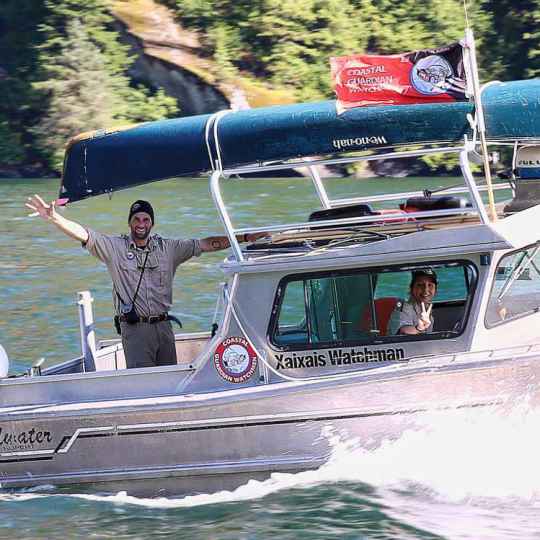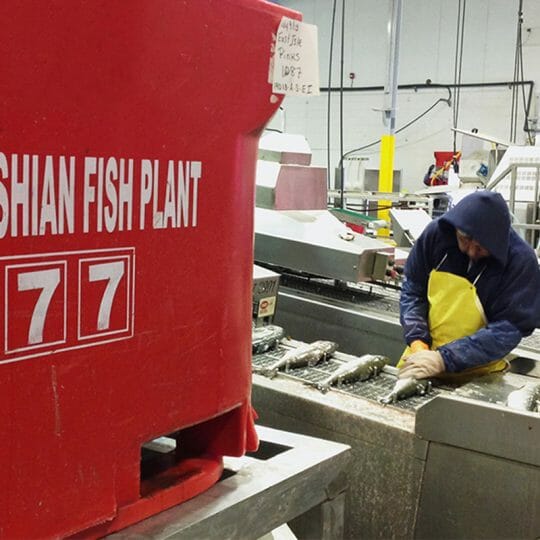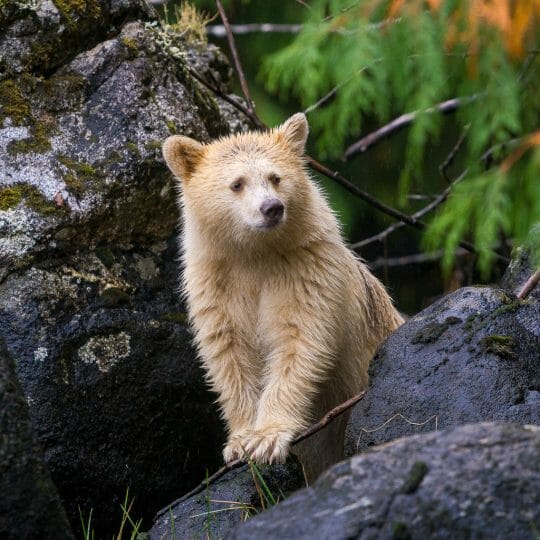Economic Prosperity
First Nations are growing local economies by investing in businesses, creating jobs, and developing new assets in the region. By building resilient communities, First Nations are able to support community well-being through employment and financial wealth.
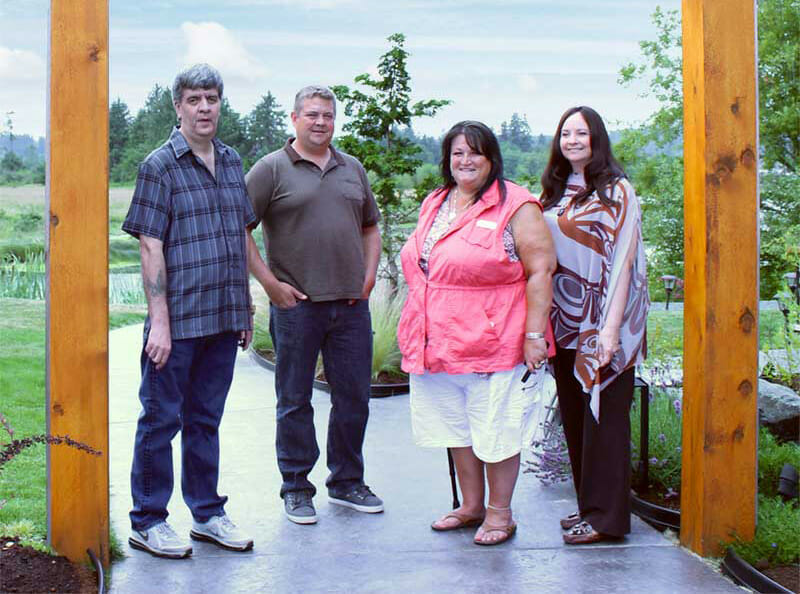
First Nations are creating sustainable businesses and strategically acquiring companies to grow and diversify local economies throughout the Great Bear Rainforest and Haida Gwaii regions of British Columbia. By creating new businesses, First Nations are creating jobs for community members who may otherwise relocate to find employment.
First Nations’ investment in the region builds partnerships, attracts additional business, and improves infrastructure, further boosting and diversifying sources of revenue. Over time, local economies are increasingly less reliant on single industries as new investment creates a diversity of small businesses.
Economic Prosperity Outcomes
First Nations are attracting significant new investment to their communities to create and expand local businesses.
Attracting New Investment
First Nations have leveraged $120,368,116 from their investments with Coast Funds to attract additional investment of $324,493,868 for both completed and active projects. This results in a total of $444,861,984 in new investment into projects throughout the Great Bear Rainforest and Haida Gwaii since 2008.
Community Well-Being Impact
First Nations are making multi-million dollar investments to provide family-supporting jobs in remote communities throughout coastal British Columbia. This helps to retain community members, particularly youth and skilled workers, in their home communities. New investment is attracting additional money into the economy which supports vibrant communities through infrastructure development, improved access to services, and new training opportunities.
The commitment of equity from Lax Kw'alaams Band (including Coast Funds’ contribution) secured significant additional funding and allowed Coast Tsimshian Fish Plant to maintain its focus on operationalizing the fish plant.
— Linda Simon, Band Manager, Lax Kw'alaams
Related Stories
Coming Home: Kwiḵwa̱sut’inux̱w Ha̱xwa’mis Invest in Solar Power, Infrastructure in Gwa’yas’dums
To revitalize the village of Gwa’yas’dums, the Kwiḵwa̱sut’inux̱w Ha̱xwa’mis First Nation has made generational investments in community planning, housing, renewable energy, and infrastructure.
Rebuilding the Heart of Wáglísla: Haíɫzaqv Invest in Community-owned Grocery Store and Bakery
When the historic Wáglísla band store was lost to a fire in 2013, community members in Bella Bella responded with quick-thinking, hard work, and a lot of love to build a new commercial complex specially tailored to the needs of Haíɫzaqv People.
Old Massett Village Council: Transforming a Haida Village Site
Old Massett Village Council’s promising new venture, Hiellen Longhouse Village, is providing ecotourism experiences of visitors to Haida Gwaii, creating jobs and training for locals, and hosting events that contribute to the Haida Nation’s ongoing cultural revitalization.
First Nations Connect, Celebrate Regional Impact at Great Bear Rainforest Economic Summit
Estimated Reading time

2 Mins
In October, First Nations leaders – including Hereditary and elected Chiefs, business leaders, and representatives from Nation’ economic development corporations – gathered in Vancouver for the Great Bear Rainforest Economic Summit, a conference marking more than 15 years of collective investment in sustainable businesses, infrastructure, and economic development on the coast. Participating First Nations have
National Geographic Features Kitasoo/Xai’Xais Nation and Spirit Bear Lodge
Estimated Reading time

2 Mins
In 1999 Kitasoo/Xai’xais launched Spirit Bear Lodge from a little red-roofed float house anchored at Klemtu’s docks. Today a luxurious new lodge accommodates visitors from around the world, most of whom come to tour the nearby islands in hope of spotting and photographing bears.
Gwa’sala-‘Nakwaxda’xw Showcase Culture and History in Unique New Hotel on Vancouver Island
Estimated Reading time

2 Mins
Gwa’sala-‘Nakwaxda’xw Nation creativity and entrepreneurial optimism shone May 17 in Port Hardy during a ceremony to officially launch the Kwa’lilas Hotel, a game-changing economic venture for its people and a significant contribution to the tourism offerings of Vancouver Island.
First Nations are investing in a range of businesses to strengthen the economy and reduce communities’ reliance on single industries.
Diversifying the Economy
First Nations have invested in a wide range of economic sectors, including tourism, manufacturing and processing, forestry, aquaculture, and stewardship public service & conservation through investments with Coast Funds.
Community Well-Being Impact
Diversification into several economic sectors is important to build resilient economies in the Great Bear Rainforest and Haida Gwaii and helps to protect communities against macroeconomic changes that affect certain industries. Stable and diversified streams of revenue protect communities from population loss should there be a downturn in any single industry.
The construction of a canoe and the development of cultural tours provided the Metlakatla Nation with the opportunity to capitalize on seasonal tourism in Prince Rupert. This opportunity helped the Nation to diversify its economic base.
— Ryan Leighton, Operations Officer, Metlakatla Development Corporation
Related Stories
Bella Guest Cabins: The Growth of Small Business in Haíɫzaqv Territory
Bella Guest Cabins—a small, locally-owned accommodation business in Bella Bella—showcases the growing success of Indigenous entrepreneurs in BC, and one of the ways Haíɫzaqv Nation is diversifying the coastal economy.
Reclaiming Control: How the Gwa’sala-’Nakwaxda’xw are Determining their Economic Future
Through in-depth community consultations, the establishment of the k̓awat̕si Economic Development Corporation reinvigorated the economic heartbeat of a community.
Written on the Land: Cultural Tourism in Nisg̲a’a Territory
A cultural tourism and marketing initiative developed by the Nisg̲a’a Lisims Government boosts tourism in the Nass Valley, raises the profile of its entrepreneurs, and reinforces the sovereignty and culture of the Nisg̲a’a Nation.
Wei Wai Kum Nation: Seaside Cottages Boost Tourism In Campbell River
By expanding a reliably performing tourism business—Thunderbird RV Park—Wei Wai Kum Nation is investing in economic development to reach new markets, providing significant new sources of revenue and employment for its people.
Old Massett Village Council: Transforming a Haida Village Site
Old Massett Village Council’s promising new venture, Hiellen Longhouse Village, is providing ecotourism experiences of visitors to Haida Gwaii, creating jobs and training for locals, and hosting events that contribute to the Haida Nation’s ongoing cultural revitalization.
Taan Forest: Protecting Haida Values through Sustainable Forestry
Ownership of their own forestry company has ensured the Haida are able to regulate logging activity on their land and protect important areas for the benefit of their people.
First Nations are creating new and acquiring existing businesses to increase their participation in the regional economy.
Creating and Expanding First Nations Businesses
First Nations have created, acquired, or expanded 144 businesses through investments with Coast Funds. The vast majority (89%) of the new businesses created are still in operation by Nations. One business was sold and seven businesses discontinued operations. Investment in these new businesses has been across a range of sectors, including tourism, manufacturing and processing, forestry, aquaculture, and transportation.
Community Well-Being Impact
First Nations are acquiring, expanding, and creating businesses to ensure they have access to the revenue produced from resources in their territory and that they are well-positioned to shape the regional economy, making long-term decisions for the benefit of community members. First Nations businesses create unique employment and training opportunities for community members, such as employing their knowledge of coastal territories and cultural traditions as tourism guides.
The Nuxalk Nation is the proud new operator of the Bella Coola Motel and our business objectives have been exceeded in five months of operation. The value of taking ownership of this historic property has made our people proud of their heritage and their Nation.
— Wilma Mack, Director of Administration, Nuxalk Nation
Related Stories
A Generational Investment: Haíɫzaqv Acquire Shearwater Resort and Marina
The Heiltsuk Tribal Council has purchased Widsten Holdings Inc., which includes the Shearwater Resort and Marina, as well as other related businesses. Through its Haíɫcístut (reconciliation) process, the Heiltsuk Tribal Council has negotiated agreements with the governments of Canada and British Columbia, which include funding for economic development.
West Sea Otter Water Taxi: A Family-Run Small Business With a Big Community Impact
West Sea Otter Water Taxi, a community-focused small business is having a major impact for Wuikinuxv Nation by making travel affordable and getting members out on their territory.
Bella Guest Cabins: The Growth of Small Business in Haíɫzaqv Territory
Bella Guest Cabins—a small, locally-owned accommodation business in Bella Bella—showcases the growing success of Indigenous entrepreneurs in BC, and one of the ways Haíɫzaqv Nation is diversifying the coastal economy.
Reclaiming Control: How the Gwa’sala-’Nakwaxda’xw are Determining their Economic Future
Through in-depth community consultations, the establishment of the k̓awat̕si Economic Development Corporation reinvigorated the economic heartbeat of a community.
Old Massett Village Council: Transforming a Haida Village Site
Old Massett Village Council’s promising new venture, Hiellen Longhouse Village, is providing ecotourism experiences of visitors to Haida Gwaii, creating jobs and training for locals, and hosting events that contribute to the Haida Nation’s ongoing cultural revitalization.
‘Na̲mg̲is First Nation: Catalyzing Change for the Future of Salmon
By establishing Canada’s first land-based Atlantic salmon aquaculture facility with recirculating aquaculture system technology, the ‘Na̲mg̲is First Nation and its diverse partners are proving that environmentally sustainable salmon farming is possible.
First Nations are forming partnerships with industry, government, environmental organizations, and other First Nations on a wide range of conservation and economic development initiatives.
Success through Partnerships
First Nations have formed partnerships with 504 different organizations through investments with Coast Funds. This has included 115 project partnerships between First Nations and 24 new joint venture agreements.
|
Partnerships Formed by First Nations |
|
|---|---|
|
Number of partner organizations |
504 |
|
Total project partnerships* |
1,273 |
|
Total project partnerships between First Nations* |
115 |
|
Total joint venture agreements |
24 |
Community Well-Being Impact
First Nations are developing partnerships to build their conservation, stewardship, and business development capacity. Partnerships in marketing, sales, joint management, and research increase capacity and enhance the operations of their organizations. First Nations are strategically partnering with other organizations to concentrate on key areas to expand operations. Partnerships between First Nations facilitate knowledge sharing and collaboration throughout the region.
We have really good relationships with the tour providers we partner with. Working together enables us to focus on providing a world-class wildlife viewing experience.
— Shawn O’Connor, Former Manager, Homalco Wildlife Tours
Related Stories
Ts’msyen Nations Pilot a Flexible, Small-Scale Commercial Salmon Fishery
On the North Coast, Ts’msyen fishers are trialling a more flexible approach to commercial fishery management.
Ha-ma-yas Stewardship Network Supports Guardians, Collaboration
Through Ha-ma-yas, Na̲nwak̲olas member First Nations are pooling resources and increasing their access to training, fundraising, procurement, and data storage, and technical expertise.
Powering Klemtu: Kitasoo Xai’xais Upgrade Hydropower System
The Kitasoo Xai’xais have expanded and modernized their hydroelectric facility, increasing its generating capacity from 0.6 to 1.7 megawatts. This renewable energy will support the growth of the community, providing electricity for homes and businesses.
Written on the Land: Cultural Tourism in Nisg̲a’a Territory
A cultural tourism and marketing initiative developed by the Nisg̲a’a Lisims Government boosts tourism in the Nass Valley, raises the profile of its entrepreneurs, and reinforces the sovereignty and culture of the Nisg̲a’a Nation.
Old Massett Village Council: Transforming a Haida Village Site
Old Massett Village Council’s promising new venture, Hiellen Longhouse Village, is providing ecotourism experiences of visitors to Haida Gwaii, creating jobs and training for locals, and hosting events that contribute to the Haida Nation’s ongoing cultural revitalization.
Coastal Stewardship Network: Collaborative Monitoring and Protection of First Nations’ Lands and Waters
The Coastal Stewardship Network is supporting its member First Nations as they’ve established sophisticated monitoring programs and their analyses informing vital environmental and resource management decisions.
First Nations are investing significantly in the development of permanent infrastructure that supports sustainable development and conservation initiatives.
Investing in Infrastructure
First Nations have invested $152,144,330 into new or improved infrastructure including the purchase of strategic properties, technology and equipment, and the construction of new facilities through investments with Coast Funds.
Community Well-Being Impact
Investment in infrastructure supports the sustainability of communities, enabling conservation programs and local businesses to expand or operate more cost effectively. New investment in infrastructure creates opportunities for current and future generations and typically enables the creation or expansion of multiple entrepreneurial businesses.
The new seafood processing facility allows Kitasoo to maximize its ability to process and market products that it could previously only harvest and sell to other processing companies. This provides greater opportunity to support local fishers with the expansion of their businesses.
— Larry Greba, Director, Fisheries and Tourism, Kitasoo Development Corporation
Related Stories
Coming Home: Kwiḵwa̱sut’inux̱w Ha̱xwa’mis Invest in Solar Power, Infrastructure in Gwa’yas’dums
To revitalize the village of Gwa’yas’dums, the Kwiḵwa̱sut’inux̱w Ha̱xwa’mis First Nation has made generational investments in community planning, housing, renewable energy, and infrastructure.
Powering Klemtu: Kitasoo Xai’xais Upgrade Hydropower System
The Kitasoo Xai’xais have expanded and modernized their hydroelectric facility, increasing its generating capacity from 0.6 to 1.7 megawatts. This renewable energy will support the growth of the community, providing electricity for homes and businesses.
Coast Tsimshian Seafood: How Lax Kw’alaams Shifted to a Sustainable and Locally Owned Fishing Industry
The purchase and renovation of a seafood processing facility has created a major economic driver in the coastal community of Lax Kw’alaams.
The Success of Spirit Bear Lodge: How a Remote, Community-led Business Became a Global Model for Ecotourism
Spirit Bear Lodge, owned and operated by Kitasoo/Xai’xais Nation, has become a successful model for conservation-based ecotourism. The Lodge has helped strengthen economic, conservation, and cultural well-being in the community of Klemtu.
Wei Wai Kum Nation: Seaside Cottages Boost Tourism In Campbell River
By expanding a reliably performing tourism business—Thunderbird RV Park—Wei Wai Kum Nation is investing in economic development to reach new markets, providing significant new sources of revenue and employment for its people.
Old Massett Village Council: Transforming a Haida Village Site
Old Massett Village Council’s promising new venture, Hiellen Longhouse Village, is providing ecotourism experiences of visitors to Haida Gwaii, creating jobs and training for locals, and hosting events that contribute to the Haida Nation’s ongoing cultural revitalization.
